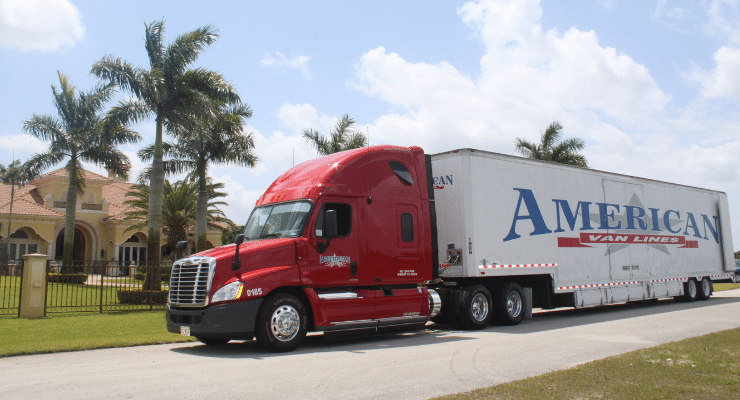Get the best deal on your upcoming long-distance relocation by asking the correct questions of the companies you interview. You’re listening not only to the basic services offered and their prices but also to how your potential mover describes their operations. Know the basic outlines of your move, such as the weight of your goods and the miles you’re traveling, so you appear sophisticated to the salesperson. It doesn’t take much prep to be able to steer the conversation away from marketing and toward facts.
Contact at least three long-distance moving companies and ask them the same five basic questions in the same way. Don’t let the company representative rephrase your question into a marketing pitch. Ask them to answer each of these questions explicitly:
- Is your company licensed for long-distance relocations?
- Are you available when I need you to move me?
- Can you explain the difference between binding and non-binding contracts?
- Do you offer any extra services, and what do those cost?
- What is your best price for my move?
Ask: What’s Your Company’s FMCA Interstate Moving License Number?
The first thing you do when you begin your conversation is to check the company’s license number with the Federal Motor Carrier Safety Administration (FMCSA). The number should appear on their website or on any marketing material they produce. To guard against rogue movers, try to limit your search to reputable companies that have been in business for more than five years.
If the number doesn’t check out, don’t listen to any excuses. A reputable long-distance carrier would never let their FMCSA registration lapse. Each long-distance moving company also must be licensed in their home state. The FMCSA licensed number, also known as a UDOT number, lets the federal government track and monitor companies for safety compliance using inspections, audits, and crash investigations. You don’t want to hire an interstate mover operating outside of those restrictions.
Ask: Is Your Company Available On My Dates During the Busy Season?
There isn’t much wiggle room with standard long-distance pricing apart from seasonal change. With a little work, you can get each company’s bottom-line price pretty quickly. Licensed moving companies are limited in what they can promise due to FMCA marketing rules. If a company’s offer seems way out of line with others, you should be suspicious. The way the company answers your questions is almost as important as what they say.
Almost two-thirds of domestic relocations occur between May and August when the kids are out of school. To get the exact moving dates you want, make your choices as soon as possible to get the best moving “windows.” Your window is the spread of days on which your pick-up or delivery can occur. As your move gets closer, your windows will tighten. Ask your long-distance mover their approach to moving windows when you call.
Ask: What’s the Difference Between Binding and Non-Binding Contracts?
Hear’s where you listen closely. The way your salesperson describes binding and non-binding contracts is important. A binding contract provides you with peace of mind because you know what your final cost will be. Some folks have difficulty waiting until the load is weighed during transport to find out their total bill. If you don’t want to worry about your final cost because you already have enough to worry about, take the binding bid and move on.
Your non-binding weight registered at the scale is liable to be more accurate than the virtual estimate used for binding bids. A virtual estimating program analyzes a scanned photo of your goods to figure out their combined weight. While these programs have become more sophisticated, they’re still just estimates. Your scale weight is determined by using two weight tickets, one issued before your goods are loaded and one after. The difference between the two represents the scale weight of your goods.
Ask: Do You Offer Extra Services Like Packing and Storage?
Try to get a feel for the size of your company’s moving footprint. You don’t want to put your move in the hands of a moving firm that operates only a few vehicles from one central location. During the heat of the moving season, you need a company with the financial resources to complete your move no matter what happens. One way to discover a moving company’s financial depth is to inquire about the extra services they offer. A bare-bones mover won’t have any extra services.
Some movers will exaggerate the amount of vehicles they own and the number of people they employ. But if they don’t run their own storage centers, don’t offer packing services, and can’t sell you supplies like cardboard boxes and packing tape, they’re probably operating by the skin of their teeth. Asking about the availability of extra services is a way to test your long-distance moving company’s wherewithal. Even if it’s not important to you, ask if they move pianos and antiques to make sure they’re up to the job.
Ask: Given These Parameters, What’s Your Best Price for My Move?
Cut through all the marketing by being prepared. The price of your long-distance move depends upon the amount of weight you move and the distance that weight travels. You can use an online weight estimation program to get your weight, or you can ask the first company you speak with for a virtual estimate. If you’re in a hurry, use the figures you get from the first company when you speak with their competitors. Otherwise, it’s interesting to hear what each company says your goods might weigh.
Ask for binding prices from all of the interstate moving companies you query. See if the distance they quote you is correct. Again, it’s not so much the amount of weight they say you own, it’s how close the estimate is to your others. Lowball weight estimates should be viewed suspiciously. A company that issues a low virtual weight could be setting you up for non-binding disappointment when the scale tells a much heavier story. Listen to how they tell their story as well as what they say.
For Best Results, Maintain the Consistency of Your Company Inquiries
Asking a few simple questions the same way should allow you to compare responses. Create a matrix and be ready to write down what each company says. That visual presentation of your work should lead to your best decision. Pick a licensed company that’s available when you want to move. Listen closely to how they describe binding vs. non-binding contracts to get a feel for their trustworthiness. Write it down, and the differences in approach will become apparent.
The company you want will answer yes to the first four questions. They should be able to offer packing and storage. If they can’t pack you, you have to wonder why. It’s a standard service. A company’s lack of storage isn’t a deal killer, but it could break a tie between close competitors. Most importantly, make sure you’re comparing prices for the same weight, the same distance, and the same set of services for your move.







